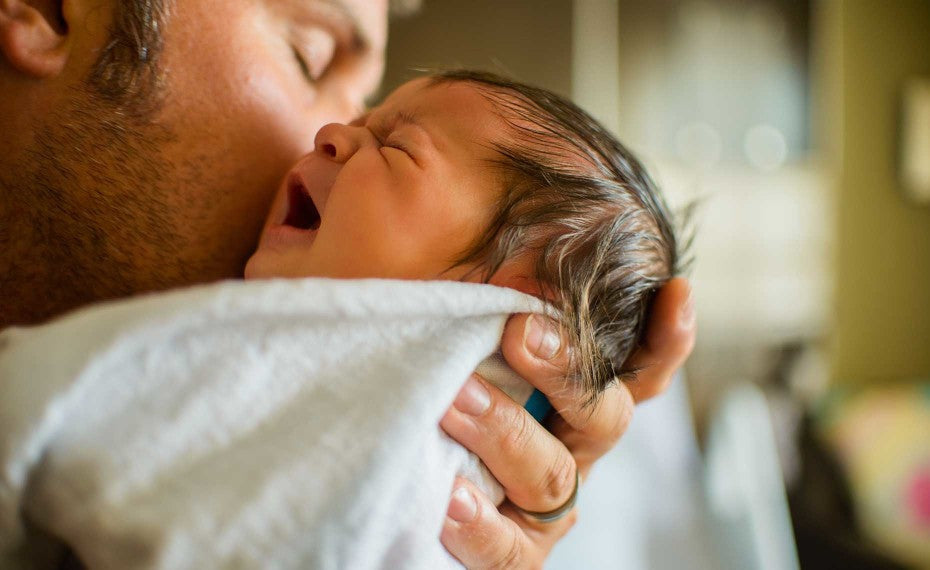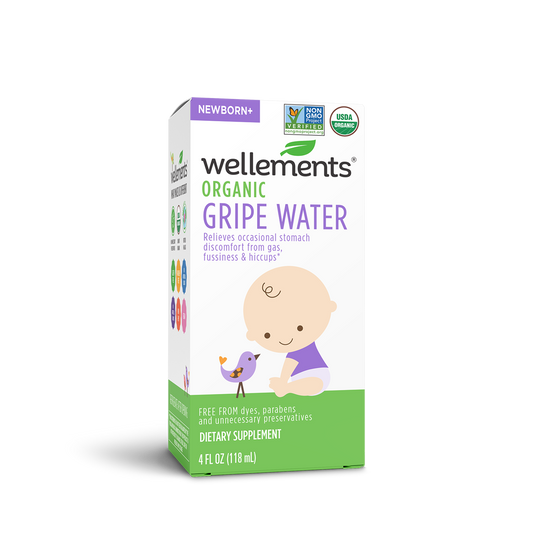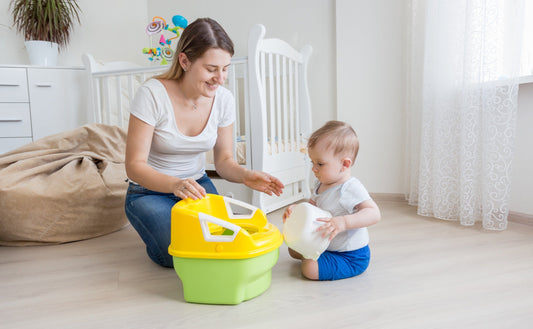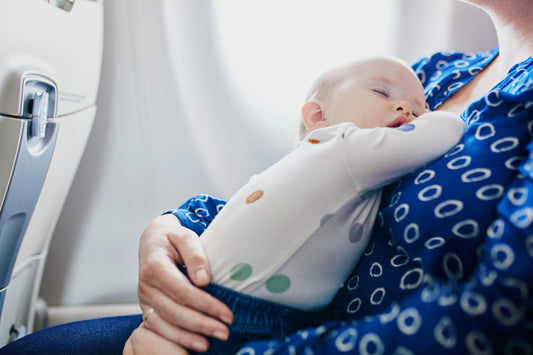New Parents' Guide To Gripe Water for Newborns & Babies: Everything You Need To Know
| updated:Share

Gassy babies are uncomfortable babies, and they clearly know how to declare their discomfort. Unfortunately, they can't express the reason for their fussiness, so parents are left to figure it out. As a new mom or dad, you've been there since day one. You probably already recognize the difference between a sleepy cry and a hungry cry... or then again, maybe it's a call for a diaper change. You may consider yourself quite the interpreter when it comes to your little one. Some infants cry for hours on end for no apparent reason; this is often caused by colic. Though long regarded as a fairly common issue for newborns, colic has always been somewhat of an enigma. However, stomach discomfort resulting from gas seems to be one of the more common symptoms.
Luckily for most babies (and their parents), tummy troubles don't seem to be a chronic problem. So how do we, as parents, keep our little ones comfortable and happy? There are many different ways of soothing a baby, but are you familiar with gripe water? It could be a valuable addition to your cache of calming aids.
What is Gripe Water?
Gripe water is a mild, over-the-counter liquid herbal supplement made specifically for babies. It's believed to help relieve occasional stomach discomfort from gas, fussiness or hiccups, often experienced by infants.
4.4 /
5.0
(64)
64
total reviews
Gripe Water
Sale price
$12.49
Traditional Ingredients of Gripe Water
Generations of parents have sworn by gripe water since its invention in England in the mid-1800s. Numerous variations have been formulated over the years, improving its safety, quality and effectiveness. The modern product frequently contains sodium bicarbonate (aka baking soda). Most gripe water contains a blend of several naturally-calming ingredients, such as ginger, fennel, lemon balm, cinnamon, peppermint, chamomile and licorice. Several types of gripe water contain sugar and artificial flavors, and sometimes even alcohol (very rarely).
What Can Gripe Water Be Used For?
Parents mainly use gripe water to help soothe occasional stomach discomfort in infants including gas and nausea. Many also find that it helps to calm colic and ease hiccups.
Is Gripe Water Safe?
You should always talk to your child's healthcare provider before giving gripe water to your baby. However, it is a safe and effective way to help with tummy troubles, since it's a very mild formula. That being said, the digestive system of a newborn can be extra sensitive since it's still developing so a few ingredients you should be mindful of and try to avoid when purchasing gripe water are:
Added Sugar can increase tooth decay risk, even in baby teeth, so you should avoid gripe water that contains unnecessary sugars. It can also produce a preference for sweet foods, thereby affecting future feeding habits.
Peppermint, while often beneficial for irritable bowel symptoms, can exacerbate reflux issues. Peppermint is a depressant; it relaxes the esophageal muscles, allowing stomach acid to travel upward within the GI system and cause distress.
Dairy, gluten, vegetable carbon and parabens are included in some gripe water. Avoid these ingredients when possible.
Alcohol is rarely found in gripe water any more but you should definitely avoid any product that contains alcohol.
How Often Should You Use Gripe Water?
All gripe water is different. Thoroughly read the directions and give your little one the recommended daily dosage. All babies are different too, so you will have to see if administering gripe water before or after a feeding is better for your baby. Always burp your baby immediately after each feeding. If you can produce a good burp, you might not need to administer gripe water at that time. A maximum of about six doses throughout the day, as needed, is usually recommended. If your child is colicky or appears to be experiencing any type of mild discomfort, you can give gripe water a go.
Gripe water is safe for most babies, and it's many parents' go-to for a simple and quick remedy. It never hurts to try other soothing methods first. Here are a few possibilities for comforting your little one:
- A gentle belly massage can help alleviate a tummy ache by allowing the baby to pass gas or burp more easily.
- Swaddling can do wonders to calm a fussy infant.
- You can calm little ones by holding them securely and gently rocking back and forth or in a rocking chair.
- Some soft, soothing music or other relaxing sounds playing in the background can help drown out other noise and calm a baby's mind.
You can also try different methods of feeding:
- Try to always feed your child in a more upright posture. This position will help to reduce the chance of gas buildup.
- Try switching to a bottle that uses reusable, collapsible bags. These bags limit the amount of air that can be swallowed by the baby, thereby reducing the risk of tummy pain.
Potential Side Effects
Side effects are uncommon with gripe water, but you should always keep an eye out for anything out of the ordinary. Allergic reactions such as watery eyes, hives, swelling of the lips or tongue, itchiness, vomiting or a breathing change can occur if your child is allergic to one of the ingredients in gripe water, but very rarely do.
Can Gripe Water Be Mixed With Formula?
Gripe water is safe to mix with formula or breast milk. However, it probably won't work as well if you combine it; blending it with other liquids will only dilute it. Since gripe water is a mild supplement, give it separately for the best results. We all hate seeing our little ones uncomfortable. Your baby's tummy troubles or colic may leave you feeling that you've tried just about every option. If you haven't tried gripe water, it might be just the trick for you and your baby!



